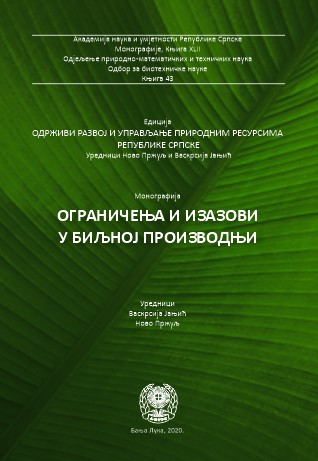Current situation and challenges in production, use and control of the presence of genetically modified organisms (GMOs) in the world, European Union and Republic of Srpska
DOI:
https://doi.org/10.7251/EORU2003537TKeywords:
Genetically modified organisms (GMOs), biotechnology, production and approval of GMOs, legislation, control of GMOsAbstract
Genetically modified organisms (GMOs) are organisms whose genome has been engineered in a way that could never happen in normal reproduction or natural recombination of existing genes within species, which means in a way that would never happen in nature. First generation of genetically modified plants have been engineered in order to facilitate their cultivation and varieties and hybrids of herbicide tolerant genetically modified plants dominated as well as plants resistant to various harmful organisms (insects and phytopathogenic fungi, bacteria and viruses). These days there is rapid work on further research and gradual introduction of the so-called second and third generation of GM plants with improved nutritional quality and new technological and other traits, such as delayed fruit ripening, stress resistance as well as drought, salinity and low soil fertility tolerance, which all together open up new approaches and opportunities to overcome the well-known limitations of tropical agriculture. However, biotechnology is currently under the light of internal debate between the supportive ones and those who are bitter opponents of GMOs. This debate includes not only scientific but also political, economic, social, health, ethical and philosophical issues. For scientists, but also for all of us, this is a great challenge that requires much more extensive, transparent and engaging research, including the allocation of decision-making and profit in a completely new way. The paper describes the current situation of production, legislation and use of GMOs in the world, European Union and in our country, as well as the most significant challenges production, approval, use and control of genetically modified organisms face today.
